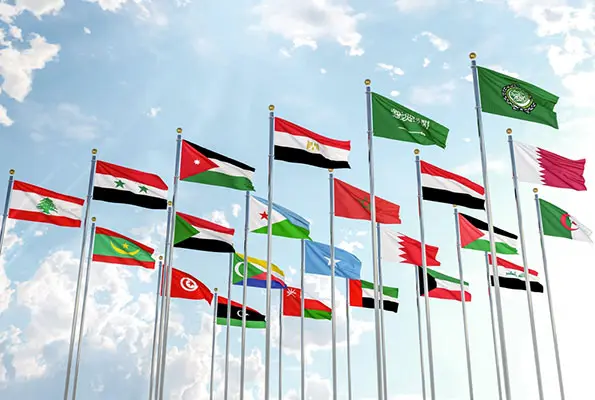According to new data released by the Industrial Transition Accelerator (ITA) and the Mission Possible Partnership (MPP), clean industry development is accelerating worldwide, with 1,001 commercial-scale projects now underway across all stages. The report, titled Global Project Tracker, reveals that 144 projects globally have reached the final investment decision (FID).
Of these, 82 are operational and 62 have secured funding, with projects spanning energy-intensive sectors such as aluminium, cement, chemicals, steel, and fuels for aviation and shipping. Methanol, aviation fuels, and ammonia have emerged as the top three focus areas.
Regarding the Middle East’s contribution, the region currently accounts for nearly 9% of all clean industry projects tracked worldwide, led by Egypt (29), Oman (21), Jordan (14), Morocco (14), the UAE (6), Saudi Arabia (5), and Algeria (1). Egypt, Oman, Jordan, and Morocco are also ranked among the world’s top 20 countries by project count.
However, only two projects in the region—one each in Oman and Saudi Arabia—have reached FID status, with 88 others in various stages of development. Collectively, these projects represent an estimated USD 304.3 billion investment opportunity, according to data from the Global Project Tracker.
Europe leads globally with 224 clean industrial projects, followed by China with 148. However, when it comes to project delivery, China, the world’s second-largest economy, leads the race with 54 projects at FID, compared to Europe’s 35. Of the 19 projects to secure funding in 2025, 12 are based in China.
Outside China, the report notes, 70 projects worldwide are considered “poised” for investment based on partial financing, offtake agreements, or technology. “These projects, primarily focused on low-carbon ammonia, sustainable aviation fuels, and green cement and steel, represent an immediate USD 140 billion opportunity,” the report states, adding that four of these high-potential projects are located in the MENAT (MENA + Turkey) region.
In the Middle East, countries are increasingly viewing clean energy as a policy option, as their economies seek to pivot away from an over-reliance on oil-based revenue streams. Assisting in this transition are the region’s sovereign wealth funds (SWFs), which are increasingly investing in critical minerals and downstream energy transition projects. As of July 2025, SWFs in the Middle East and North Africa (MENA) region were managing over USD 5 trillion in assets, with Saudi Arabia and the United Arab Emirates (UAE) accounting for two-thirds of the region’s efforts.
Many Middle Eastern SWFs have invested in critical mineral and energy transition projects both domestically and internationally. For example, Saudi Arabia’s Public Investment Fund (PIF) is now a majority shareholder of US-based Lucid Motors, having invested USD 1 billion into the automaker. Manara Minerals, a joint venture between PIF and Ma’aden that invests in global mining assets in emerging markets, invested USD 2.5 billion for a 10% stake in Vale Base Metals.
The Qatar Investment Authority (QIA) has emerged as the largest institutional investor in the global mining company Glencore, in addition to investing USD 180 million in TechMet, a US/Ireland company that invests in critical mineral projects worldwide.
Technology developers have also attracted SWF capital. Massachusetts-based Ascend Elements received investment from both QIA and Oman’s SWF, the Oman Investment Authority (OIA). QIA also invested in solid-state innovator QuantumScape, while OIA has invested in silicon anode developer Group14.


